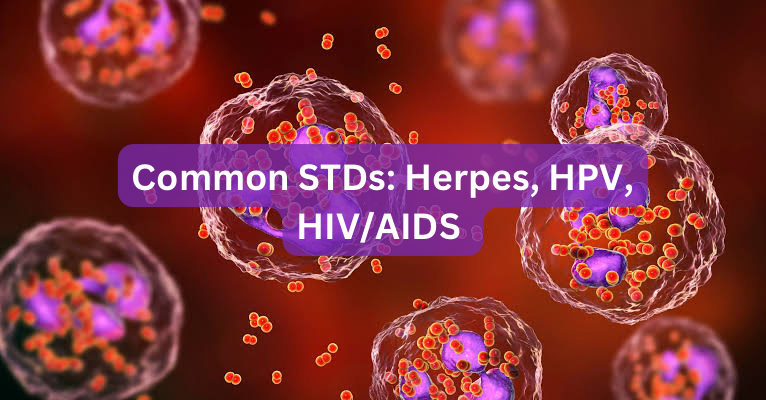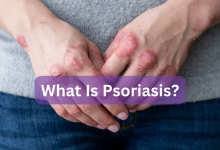Common STDs: herpes, HPV, HIV/AIDS

S*xually transmitted diseases (STDs) are a common health concern that can affect anyone who is s*xually active, regardless of age, gender, or s*xual orientation. STDs are caused by a variety of bacteria, viruses, and parasites that can be transmitted through s*xual contact. In this blog post, we will discuss three of the most common STDs: herpes, human papillomavirus (HPV), and human immunodeficiency virus (HIV) and acquired immunodeficiency syndrome (AIDS).
1. Herpes
Herpes is a viral infection that can be transmitted through oral, vaginal, or anal s*x. There are two types of herpes: herpes simplex virus type 1 (HSV-1) and herpes simplex virus type 2 (HSV-2). HSV-1 is typically associated with cold sores on the mouth, while HSV-2 is typically associated with genital herpes.
Symptoms Of Herpes
Symptoms of herpes can include sores or blisters on or around the genitals, anus, or mouth, as well as fever, headache, and muscle aches. While there is no cure for herpes, antiviral medications can help manage symptoms and reduce the frequency of outbreaks. Herpes is a chronic condition that can be managed with medication and lifestyle changes.
2. Human Papillomavirus (HPV)
HPV is a viral infection that is transmitted through skin-to-skin contact during s*xual activity. There are over 100 different types of HPV, some of which can cause genital warts and others that can cause cancer. HPV is the most common s*xually transmitted infection, with nearly all s*xually active people contracting it at some point in their lives.
Read Also: Connection Between STDs And Cancer.
Symptoms Of HPV
Symptoms of HPV can include genital warts, which can be flat, raised, or cauliflower-shaped. Most people who have HPV do not experience any symptoms, however. While there is no cure for HPV, there is a vaccine that can prevent many types of the virus, including those that are linked to cancer. The HPV vaccine is recommended for both males and females aged 9-45, and it is most effective when given before s*xual activity begins.
3. HIV/AIDS
HIV is a virus that attacks the immune system. It is transmitted through blood, s£men, vaginal fluids, and breast milk. HIV can lead to acquired immunodeficiency syndrome (AIDS), which is a condition that occurs when the immune system is severely damaged and cannot fight off infections and diseases. HIV weakens the immune system, making it easier for other infections and illnesses to take hold.
Symptoms Of HIV
Symptoms of HIV can include flu-like symptoms, such as fever, headache, and muscle aches. As the virus progresses, it can cause weight loss, fatigue, and night sweats. While there is no cure for HIV/AIDS, antiretroviral therapy (ART) can help manage the virus and prevent it from progressing to AIDS. ART is a combination of medications that can help reduce the amount of HIV in the body, prevent the virus from replicating, and improve immune function.
It is important to get tested for STDs regularly if you are s*xually active, as many STDs can be asymptomatic. Practicing safe Intercourse, such as using condoms and getting vaccinated for HPV, can also help reduce the risk of contracting an STD. If you are diagnosed with an STD, it is important to talk to your healthcare provider about treatment options and how to prevent transmitting the infection to others.







